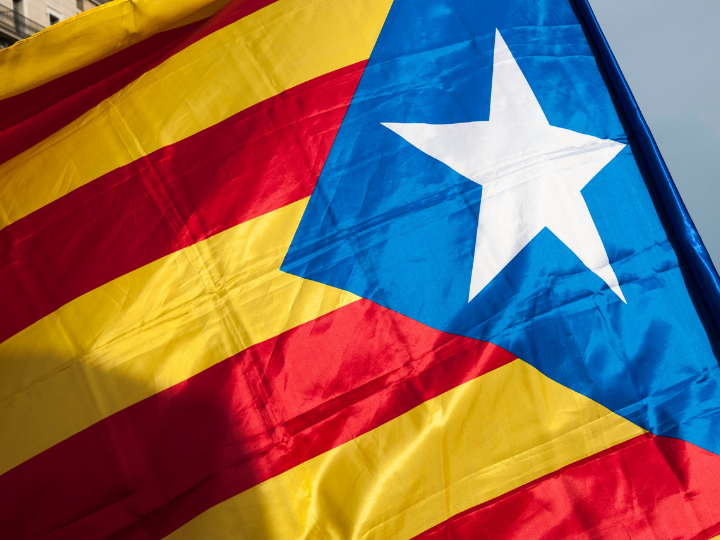by Barry Wood *
In Prague on November 16, 2019, the day before the 30th anniversary of the velvet revolution that ended communism, 250,000 people gathered not to celebrate freedom but to demand the resignation of the prime minister.
They accuse populist prime minister Andrej Babis, a billionaire, of abusing power and posing a threat to Czech democracy. The 64-year-old Babis is a media and business magnate and former communist. He was recently investigated but not charged with fraud.
Despite the protests and the serious questions about his mingling of public service and his vast private interests, Babis remains relatively popular among Czechs. His poll numbers are as high as when the party he founded won the parliamentary election held in 2017.
Stuck in a national malaise
Polarized and despondent, the Czech Republic is not a happy place. Despite rising living standards and its membership of NATO and the EU, Czechs are stuck in a national malaise.
It is a malady that also afflicts their central European neighbors, Slovakia, Hungary and Poland.
The Polish case
Lech Walesa, hero of the Polish revolution, came to Washington this past week to commemorate the great events of 1989. The former president and Nobel Peace Prize winner, lamented that in his country, “we defeated communism…but allowed populist demagogues to win elections.”
Walesa bitterly opposes the socially conservative, anti-immigrant Law and Justice party that has ruled Poland since 2015.
Appearing alongside Walesa at Washington’s National Endowment for Democracy, economic reformer Leszek Balcerowicz said democracy requires an independent judiciary and media — institutions that are under pressure in Poland.
Hungary’s malady
In Hungary, Viktor Orban’s anti-immigrant, nationalist Fidesz party has dominated politics since 2010, winning majorities in three successive parliamentary elections.
Despite being a leading figure in Hungary’s 1989 revolution, Orban has gained support in this decade largely by refusing Muslim immigration while emphasizing Hungary’s Christian identity.
Orban has also clamped down on dissent, installed loyalists in the courts and attacked the dominance of Germany and France in the EU.
Deploring a steady erosion of freedoms, writer Anne Applebaum says, “Hungary is no longer a democracy.” But at least there are some signs that Orban’s rule isn’t going unchallenged. His candidate in the crucial race for mayor of Budapest lost, facing a united range of opposition parties.
The case of Slovakia
Governed largely by leftist populists, Slovakia like its neighbors opposes Muslim immigration. With corruption a chronic problem, its judiciary and media are fragile.
Last year, Slovaks were shocked by a gangland-style murder of a journalist investigating corruption. The public backlash led to the resignation of the prime minister and the election of a pro-EU lawyer as president. Parliamentary elections are due in early 2020.
What happened to the idealism and hope of 1989?
Ivan Krastev, the very thoughtful Bulgarian political analyst, argues that central Europe is bereft of enlightened leadership. There is no Vaclav Havel or Lech Walesa to inspire people.
The presence of such personalities matters all the more, says Krastev, because the roots of democracy in the CEE countries are shallow. Despite 30 years of experiencing freedom, citizens have reverted to the cynicism and alienation that were pervasive during communism.
In addition, in what can only be regarded as a powerful no-confidence vote in the various countries’ leaderships, the region suffers from an unprecedented emigration of the young and educated to western Europe.
Is the EU responsible for the malaise?
Income inequality has soared. And even as living standards have advanced, people living in the CEE countries have grown impatient with the slow pace of catching up with Western Europe.
Vaclav Klaus, the controversial former Czech prime minister and president, argues that the EU bears responsibility for much of the malaise. Speaking at a Prague event celebrating the events of 1989, Klaus accused the EU of weakening freedom and national sovereignty by promoting multi-culturalism and transnational identity.
The young generation is not convinced of this blamesmanship of outside forces. At Saturday’s rally in Prague, a student organizer emphasized that the protests are aimed at the government, not democracy.
“First and foremost,” said Mikulas Minar, “we want politicians who respect democratic principles and institutions, who do not lie, do not embezzle, do not intimidate and do not have conflicts of interest.” Another protest leader added, “We are not protesting against the system, but we are trying to prevent the prime minister changing it.”
This past weekend’s events in Prague – the biggest protests since 1989 – bring to mind the words of Tomas Masaryk, Czechoslovakia’s first president who said in 1918, “now we have a democracy, what we also need are democrats.”
*Washington writer and broadcaster
**first published in: www.theglobalist.com




 By: N. Peter Kramer
By: N. Peter Kramer

